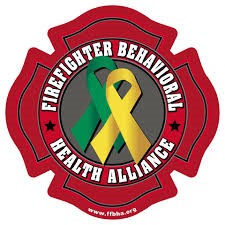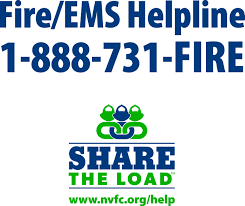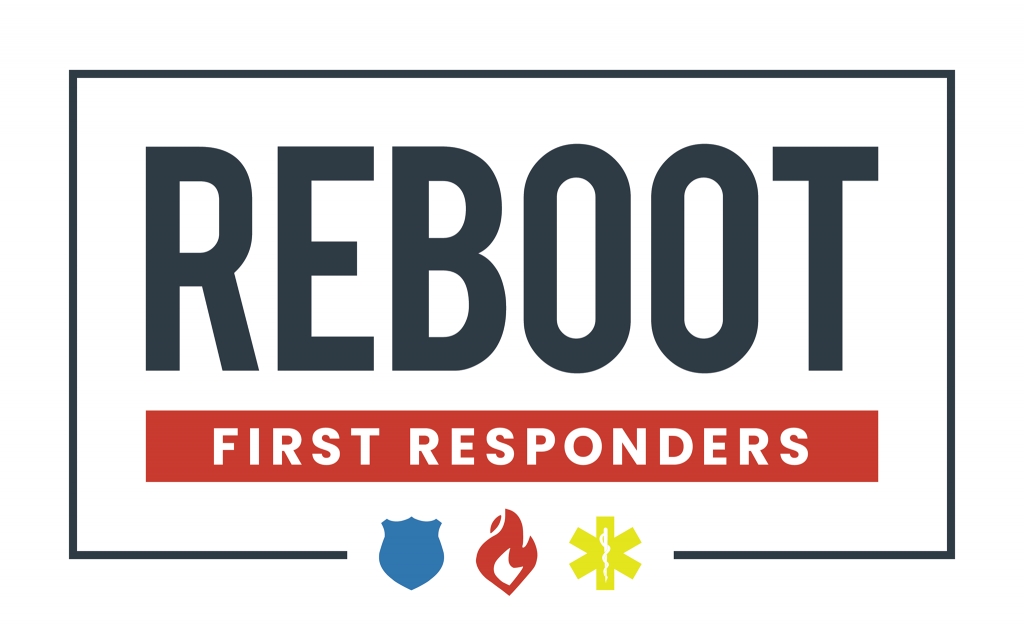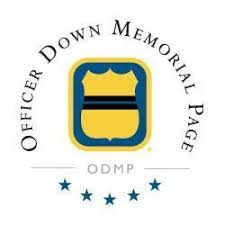– Survivors Guilt –
Letting Your “Head” Get Inside Your Head

1963 Dodge Unmarked Police Car
Daily, our cops, firefighters, and medics see and experience the ugliness of this World. We see the evil in people and sometimes suffer the consequences of their wickedness.
Survivors of a tragedy in which their friends died share a common emotional experience: guilt. Those who survive are plagued by an unanswerable question: “Why me?” “How did I avoid being hit by a bullet, burned in a fire, or escaped a ceiling that collapsed?”
55 O death, where is thy sting? O grave, where is thy victory?
56 The sting of death is sin; and the strength of sin is the law.
57 But thanks be to God, which giveth us the victory through our Lord Jesus Christ.
1 Corinthians 15:55-57 KJV
Saturday, March 9, 1963, was a typical spring evening in Southern California. The temperature in the City of Angels was in the mid to upper 50’s, and the skies were clear. Because the streets of Hollywood were crowded, the two young plain-clothed Los Angeles Police Officers patrolled the back streets in their unmarked “felony” car.
They stopped a 1946 Ford coupe occupied by two suspicious men near the corner of Carlos Avenue and Gower Street. Unbeknownst to them, the two shady people in the Ford were felons on a robbery spree.
As the evening fell into night, the dispatcher continued repeating “Six – Zebra – Four” – “6 – Zebra – 4 code 1” – “Six – Zebra – Four.” The city would soon learn that two ex-convicts kidnapped Los Angeles Police Officers Ian Campbell and Karl Hettinger, both former US Marines, and took them to an onion field outside Bakersfield. In his book “The Onion Field,” Joseph Wambaugh described what happened next:
Gregory Powell said to Ian Campbell, “We told you we were going to let you guys go, but have you ever heard of the Little Lindbergh Law?”
Ian said, “Yes.”
And Gregory Powell raised his arm and shot him in the mouth,
For a few white-hot seconds the three watched him being lifted up by the blinding fireball and slammed down on his back, eyes open, watching the stars, moaning quietly, a long plaintive moan, and he was not dead nor even beginning to die during these seconds—only shocked, and half conscious. Perhaps his heart thundered in his ears almost drowning out the skirl of bagpipes. Perhaps he was confused because instead of tar he smelled onions at the last. He probably never saw the shadow in the leather jacket looming over him, and never really felt the four bullets flaming down into his chest.”
(Publisher: Delacorte Press, 1973, page 181)
It happened, just like that. One moment four men were talking in an onion field outside of Bakersfield, and suddenly someone died the next.
To save his own life, Officer Karl Hettinger ran, and for the rest of his life, he ran. He wasn’t killed in that field, but he could have been. Karl Hettinger was experiencing survivor’s guilt, and he never truly lived after that.
Seeing his days are determined, the number of his months are with thee, thou hast appointed his bounds that he cannot pass;
Job 14:5 KJV
Being a specific type of guilt, survivor’s guilt may occur in those who have survived a life-threatening event, including:
- Police Officers who witnessed the deaths of their fellow officers
- Firefighters, losing partners in a fire they were battling
- Losing family and friends during hurricanes, earthquakes, and other natural disasters
- Acts of terrorism, such as the attacks of 9/11
- Parents whose children died or family members who lose siblings to hereditary illnesses, cancer, or suicide

Photo by K. Mitch Hodge on Unsplash
After trauma or a tragic event, those who believe it is unfair that they lived while others perished or thought they did not do enough to preserve others’ lives may develop survivors’ guilt.
Survivors’ guilt can make people wonder why they survived when others died, why they were lucky when others weren’t, if they could have done more to prevent the deaths of others, and if others suffered as a result of the event.
There has been a rethinking of Post-Traumatic Stress injury (PTSi) studies in recent years. A growing body of evidence suggests that PTSi may not be just an anxiety disorder. Research shows that PTSi is often accompanied by various other emotions that are important in its development and maintenance. Guilt has been connected to the onset and maintenance of PTSi symptoms.
The Diagnostic and Statistical Manual of Mental Disorders (DSM-5; American Psychiatric Association, 2013) reclassified PTSi from anxiety-related condition to trauma- and stressor-related disorder. Fear, anger, guilt, and shame were added to the list of critical emotional responses to trauma.
Nightmares, difficulties sleeping, flashbacks to the horrific incident, loss of motivation, anger, a sensation of numbness, and concerns about the meaning of life are common symptoms of survivor guilt. According to the National Institutes of Health, many people with survivor’s guilt and other post-traumatic stress symptoms recover without treatment within the first year after the event. However, for at least a third of people, post-traumatic stress symptoms will continue for years.
Survivors’ guilt is a type of false guilt. Having survived a tragedy does not violate any moral standards. It is the kind of guilt that resonates inside your head; it is the voices of the World, the Flesh, and Satan combined leading you into that never-ending conversation. It is the continual question; we know there is no answer, so the question repeatedly plays, attacking our Soul.
The International Society for Traumatic Stress Studies states a significant link between traumatic events and substance abuse disorders. Many people turn to alcohol or narcotics for comfort after experiencing a traumatic event. They must deal with emotional pain, bad memories, lack of sleep, guilt, shame, stress, and other issues, as well as fear.
Traumatized people, people suffering from survivor’s guilt are more likely than others with similar backgrounds to abuse alcohol before and after being diagnosed with post-traumatic stress.
- Drinking difficulties are reported by one-quarter to three-quarters of those who have experienced abusive or violent traumatic situations.
- One-tenth to one-third of people who survive an accident, illness, or tragedy report drinking problems, especially if they have chronic health problems or are in pain.
- Up to 80% of Vietnam veterans seeking post-traumatic stress treatment have alcohol problems.
- Women who have had stressful life events are more prone to develop an alcohol use disorder.
- Veterans with post-traumatic stress over the age of 65 are more likely to attempt suicide if they have problems with alcohol or depression.
Those who have had suicidal thoughts or attempted suicide should seek medical help as soon as possible. According to the Journal of Loss and Trauma, surviving a horrific event that culminates in the death of a loved one is linked to a higher risk of suicide.
People who are still experiencing tremendous guilt, flashbacks, frightening dreams, and other post-traumatic stress symptoms should seek professional support. While psychotropic drugs and psychiatric counseling may help, a strong relationship with God, our creator, is the only way to heal from this injury successfully.
Refusing to let go of your terrible past is a massive element of survivor’s guilt. It’s as if you’re refusing to embrace God’s grace when he reaches out to you at your darkest hour.
We are all guilty of clinging to things that haunt us, whether or not we experience survivor’s guilt. We need to accept that Christ desires to assist us in letting go of the past, allowing us to go on in peace.
Only Jesus has the power to make us whole again when we have failed. He wishes to meet us where we are, in our pain. He is anticipating a godly response from us, which will lead to action for his kingdom.
Thine eyes did see my substance, yet being unperfect; and in thy book all my members were written, which in continuance were fashioned, when as yet there was none of them.
Psalm 139:16 KJV
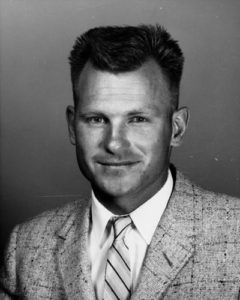
Karl Hettinger Photo courtesy of the Los Angeles Public Library
After surviving the “Onion Field” incident, Karl Hettinger was forced to attend “police roll calls” across Los Angeles and ordered to recount the events of that evening, including publicly admitting blame for his lack of courage, how he surrendered his firearm, and the disastrous results. He was forced to re-tell the story, again and again, reinforcing his agony and the guilt that he was somehow to blame for Campbell’s death. The Los Angeles Police Department branded Officer Hettinger as a coward.
Depressed and finding it difficult to function, Hettinger was transferred to a less stressful job as a driver for the police chief. But after he began shoplifting, Hettinger was forced to resign from the police department.[1]
The court process lasted over a decade, cementing the Post-Traumatic Stress Hettinger was experiencing. Karl started a business as a gardener and later accepted a foreman position at a farm outside of Bakersfield near the “Onion Field,” where Ian Campbell was murdered.
In 1987, Hettinger was appointed by California Governor George Deukmejian to the Kern County Board of Supervisors until 1993. Sadly, Karl Hettinger died in Bakersfield on May 4, 1994, of cirrhosis of the liver he was 59 years old.
Of Hettinger, former Los Angeles Police Chief Daryl Gates stated, “He was a great police officer and a great man who pulled himself up out of having been involved in a great tragedy,” adding, “I think he always felt guilty because he ran.” “I could never understand it. If he had stayed, he’d have been dead.”[2]
Los Angeles Police Officer Karl Hettinger didn’t die in the “Onion Field” on that March night. Consumed by Guilt and Post-Traumatic Stress, he lived another 30 agonizing years, trying to control his demons with alcohol. He let the voices in his head, the voices of the World, the Flesh, and Satan overwhelm him. He let his “head” get inside his head.
Are you simply going through the motions, or are you living a life of meaning and purpose? Have you allowed your past failures or your current difficult situation to keep you from truly living? It is time to understand that there are only two choices in life: March or Die. The next step may not be easy, but it is the most important step that you will ever take. (Jeremy Stalnecker, March or Die, Making Life Better Publishing (January 1, 2018))
IF YOU HAVE THOUGHTS OF SUICIDE GET HELP NOW
Law Enforcement Copline (800) 267-5463
Firefighters / Medics Fire/EMS HELPLINE (800) 731-FIRE (3473)
To learn more, please read “The Onion Field” by Joseph Wambaugh, available from Amazon, or see the movie of the same name on your streaming device.
- “Newtown tragedy is a reminder that police, first responders also suffer PTSD Cory Franklin”. The Guardian. March 20, 2013. Retrieved December 2, 2021 ↑
- “Karl Hettinger; Survived 1963 ‘Onion Field’ Attack,” Los Angeles Times, May 5, 1994, obituaries, Retrieved December 4, 2021 ↑



